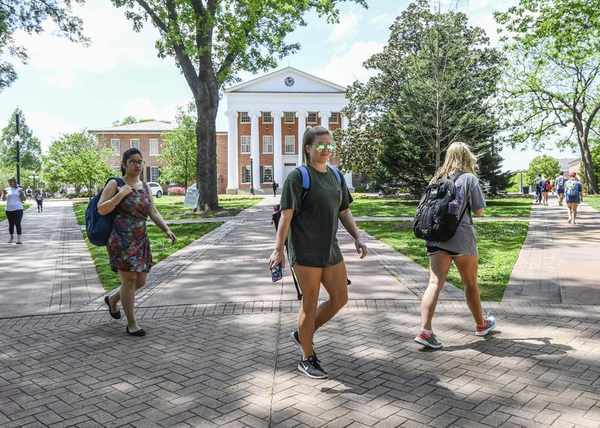
As millions of college students across the country pack their bags for the fall semester, many are wondering how they are going to pay for it.
Millennials today face tuition and fees three times higher than their parents did in the ‘70s and ‘80s, adjusting for inflation. Skyrocketing costs are forcing students to borrow money at historic levels. Nationwide, Americans owe more than $1.4 trillionin student debt – double what they owed in 2009.
With the rise in tuition rates and student debt showing no sign of slowing, it might seem as if our nation’s higher education system is rigged against the very students it is designed to serve. In fact, it is.
Empowered by the federal government, a powerful cartel of college accreditors is stifling competition, driving up tuition costs and limiting the options available to students.
College accreditation is technically voluntary. But under the Higher Education Act, only schools accredited by federally approved institutions are eligible for grants and financial aid. With federal student aid and subsidies accounting for an ever-growing share of university budgets, accreditation is all but mandatory for most schools.
As a result, college accreditors have become the de facto gatekeepers of the higher education system. It’s an arrangement riddled with conflicts of interest. Many colleges and universities are dues-paying members of the same accrediting associations that oversee their accreditation. Even the staff of accreditation agencies are often employed by the very colleges they monitor.
These conflicts make accreditors beholden to the interests of existing colleges and universities. They are unlikely to deny the accreditation renewal of the association members who fund them. And they have little incentive to accredit new institutions that could offer students cheaper, better or more innovative alternatives to the status quo.
Millennials are a forward-looking generation that believes in the power of innovation to transform our lives for the better, and we bring the same attitude to education. A 2013 study found that about 50 percent of students believe that online colleges are reputable and that they don’t need a physical classroom to learn. Another 39 percent said the future of education will be more virtual.
But innovating the college experience is next to impossible under our current, bureaucratic accreditation regime. By law, only degree-issuing academic institutions are eligible for accreditation. That places innovative new learning options like Massive Open Online Courses (MOOCs) at a distinct disadvantage.
Even accredited schools are hamstrung by bureaucracy. If they wish to make changes to their programs, delivery of instruction or other aspects of their operation, they must often seek written approval from their accreditor months in advance. Experimentation is discouraged since unauthorized changes can cause a school to lose its accreditation.
Students need higher education reform, but the answer isn’t to pump even more federal subsidies into an already-bloated system. Rather, Congress should break up the federally sanctioned cartel by giving states the authority to approve accreditors on their own.
There’s no reason that a state-based system should be limited to accrediting traditional brick-and-mortar colleges. Online courses, apprenticeships, trade certification programs and more should be eligible for accreditation if they meet the standards set by the state.
This reform would open up new educational possibilities to students who aren’t well served by the traditional college system, such as working parents who lack the time to take more than one course simultaneously. And faced with new competition, colleges and universities would have a strong incentive to lower their sky-high tuition rates.
Legislators cannot sit idle as mounting student debt puts financial security out of reach for millions of young Americans. Shattering the college accreditation cartel would expand the options available in higher education, spark innovation and lower costs for students and taxpayers alike.
[“Source-realcleareducation”]












